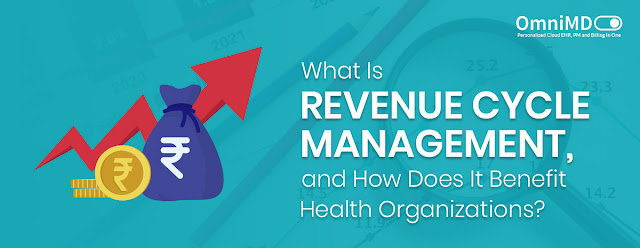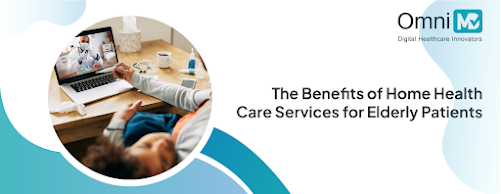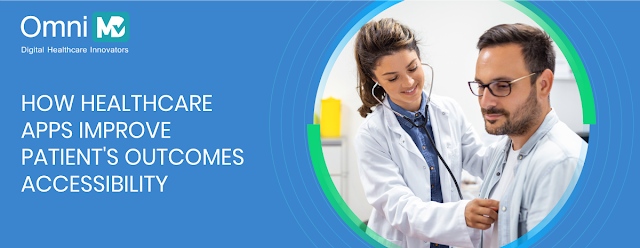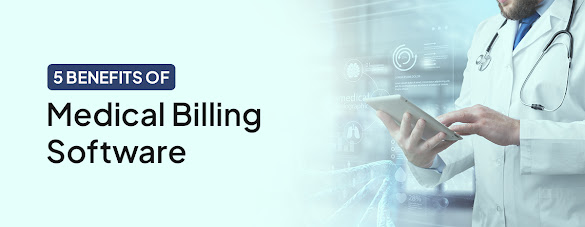What Is Revenue Cycle Management, and How Does It Benefit Health Organizations?
Health organizations may seem to generate positive revenues based on paper records but how much of it is actually realized and the speed of cash inflow tells the story of its financial health. Revenue collection can be negatively impacted by poor coding, errors in billing, and delays or denials by insurance companies. Most of these and other deficiencies can be overcome and addressed by the use of a revenue cycle management solution.
What is revenue cycle management?
(RCM) is a process, usually a part of EMR or EHR systems used by healthcare services. It is comprehensive in nature, ranging from scheduling appointments to registrations to giving a cost estimate to tracking a patient’s treatment to billing, recovery, and follow-up.
With covid-19 pandemic hitting the healthcare systems on a global level, about 75% of healthcare facilities implemented RCM to continue serving the patients despite quarantine and social distancing measures.
RCM software delivers proven benefits not only to patients but to the healthcare service providers as enumerated in the following paragraphs.
The revenue pitfalls in healthcare services
Healthcare organizations need a steady and healthy cash flow in order to meet expenses as also for future expansions. However, recovery of dues is not 100% guaranteed due to various factors:
- Not collection of complete information from the patient as regards health condition and insurance coverage,
- Disputes arising due to misunderstanding about patient’s expectations of the cost of treatment and actual treatment,
- Delays and denials by insurance companies in the settlement of claims, and
- Changing laws and regulations.
The RCM System addresses these and other issues and when incorporated as part of medical appointment software or plugged into EMR/EHR, can considerably reduce outstanding and improve transparency, the reputation of the healthcare provider and also give satisfaction to patients.
RCM enables streamlined collection of data
Healthcare service providers may choose to outsource this work to a revenue cycle management company but it makes good sense to have this process in-house. With RCM integrated into existing software solutions such service providers can streamline processes such as:
- Schedule an appoint
- Register a patient
- Collect patient data such as health and medical records and vital insurance papers and check about claims admissibility
It is vital for healthcare providers to collect patients’ medical records in order to know the line of treatment to be initiated and the costs involved and to also know just how much of these costs can be covered by insurance and how much the patients will have to bear. It is wise to give patients a clear indication of their part of the financial burden rather than spring surprises later on after the treatment is over.
RCM can use this data and the RCM software to:
- Record treatments and associated costs
- Raise bills and submit claims to the insurance provider using the correct codes to record them so as to avoid denials
- Follow up for recovery of dues, send reminders and collect payment from patients and also from insurance and refile claims in case of denials. If insurance is denied outright then amounts may be recovered from patients through the automated software. Insurance can be a very sticky point; errors here can lead to misunderstandings with patients and loss of revenue through denied claims. Automation, fine-tuning, and reminders in the RCM greatly improve the insurance part of the process.
Considering that not all healthcare providers are the same in the method of operation or size, they may need custom RCM systems in the selection of which suitable revenue cycle management consultants can be of great help. They can assist in the selection of the RCM software and also to set up best practices for RCM.
Benefits of Revenue Cycle Management Solutions to Healthcare Providers
Engage RCM consultants to choose the right RCM solution and have them set up the RCM system to suit your particular method of operations. You may need to have the RCM software integrated into the medical appointment software, which the software provider can carry out. The first step is creating awareness about the importance of fast cash flow and encouraging the use of the software by personnel who must be given training in the use of RCM solutions.
This leads to systematic benefits as given below.
Streamlining
RCM streamlines the connection between health records, treatments, and accounting systems through integration. You have a single point of view on financial health, billing, bad debts, receivables, and claims (in process, disputed, and denied).
Better, faster, and higher recovery
Recovery from insurance is a sore point. By reducing errors in coding and filing claims under the right head, the software improves the recovery rate and reduces the percentage of denied claims while also issuing alerts about refiling within the stipulated time, thanks to efficient revenue cycle management systems.
Simplify tasks, automate them, and reduce workload
The RCM solution simplifies tasks, reduces workloads, reduces margins of errors, and provides single window access to all records and facilities for follow-up for recovery. The RCM software reduces burden, time, and effort.
Single-point access to all patient records
You have all patient records and related financial records in one place giving all vital information at a glance.
Fingertip analysis and generation of reports
Streamlined and integrated data can be analyzed quickly to derive insights about revenue flows and the state of the financial health of service providers, thereby enabling timely action. Knowing your financial condition can help you to take corrective action to reduce debt and speed up cash flow.
Create a better impression, improve relationships, and generate more business through referrals
By being open, transparent, honest, and upfront about treatment costs the healthcare provider creates a better impression in the minds of the patients, leading to more referrals and recommendations.
Healthcare is infinitely more convoluted and complex than cash-and-carry businesses. Healthcare is a business in a manner of speaking, relying on healthy revenues for sustenance and growth. The right RCM solution makes a world of difference to the financial health of providers as well as patient relationships. It is advisable for healthcare providers to choose RCM software with care and also have it implemented by RCM consultants/solution providers in order to make the best use of it.




Comments
Post a Comment